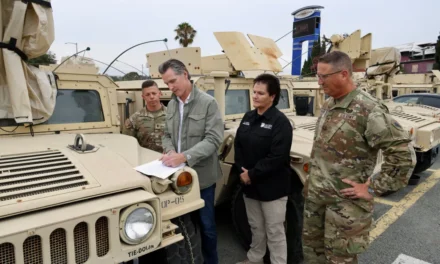SACRAMENTO–California State Assemblywoman Lorena Gonzalez Fletcher (D-San Diego) introduced Assembly Bill 386 to provide legal representation to foreign-born U.S. military veterans who have been deported under federal immigration law.
AB 386 would create the Veteran Reentry Assistance Fund to receive both private funding as well as money budgeted by the Legislature to contract with qualified non-profit legal service organizations to provide legal services to deported veterans who are seeking reentry to the nation they served.
“These men and women have fought for our country, only to be tossed aside by the very government they served, and that’s offensive to me as a American and as the wife of a veteran” Assemblywoman Gonzalez Fletcher said. “These veterans deserve a chance to plea their case in immigration court.”
A recent report by the American Civil Liberties Association (ACLU) of California titled Discharged, then Discarded highlighted the federal government’s cruel policy of deporting immigrant veterans for minor, misdemeanor offenses, such as possession of marijuana.
The ACLU estimates more than 250 veterans have been deported to 34 countries, although the precise number of deported veterans is unclear, as Immigration and Customs Enforcement (ICE), the federal agency responsible for the deportations, does not keep track of those figures. An estimated 70,000 noncitizens enlisted in the U.S. military from 1999 to 2008, according to the Center for Naval Analyses, a research and development center for the U.S. Navy and the Marine Corps.
Special provisions of the federal Immigration and Nationality Act authorize U.S. Citizenship and Immigration Services (USCIS) to expedite the application and naturalization process for current members of the U.S. Armed Forces and recently discharged service members.
Gonzalez Fletcher says the provisions are being flouted or ignored when it comes to the veterans, many of whom came to the United States as children, grew up here, and consider themselves patriotic Americans. In many cases, the veterans who are deported are sent to countries with which they do not speak the language or have any real connection.




